Find Help
More Items From Ergsy search
-
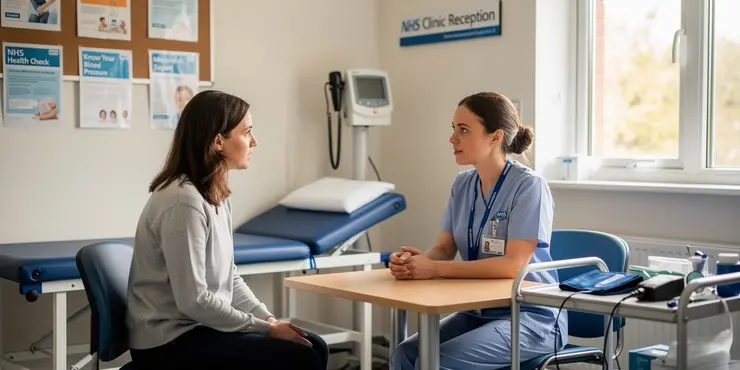
A Radiotherapy appointment in east and North Hertfordshire
Relevance: 100%
-

NHS Ayrshire and CVO East Ayrshire - ‘Feet First – Podiatry Services in East Ayrshire’
Relevance: 24%
-
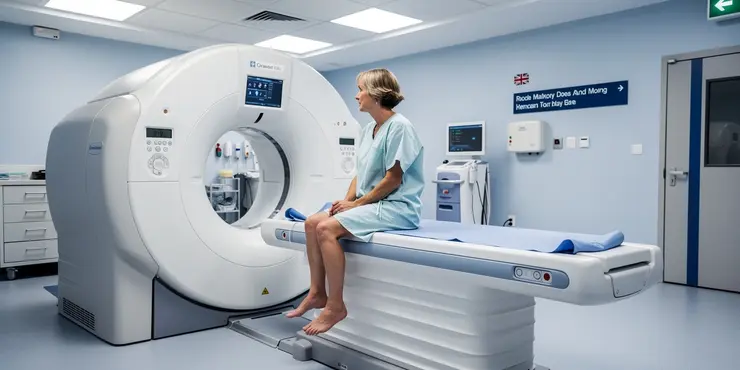
Radiotherapy CT scanner
Relevance: 24%
-
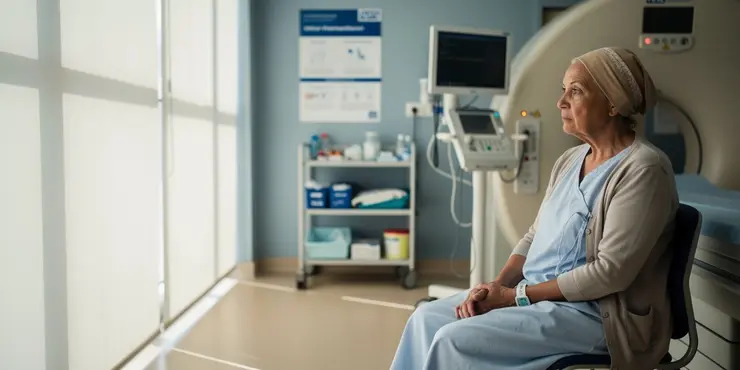
Having radiotherapy for breast cancer - 3 Videos
Relevance: 23%
-
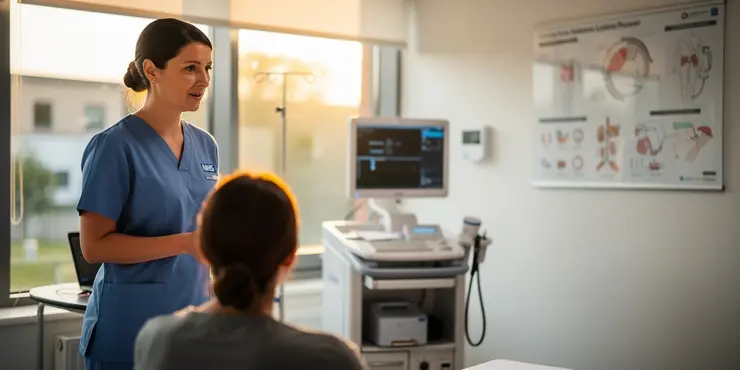
Radiotherapy Services at University Hospital
Relevance: 23%
-
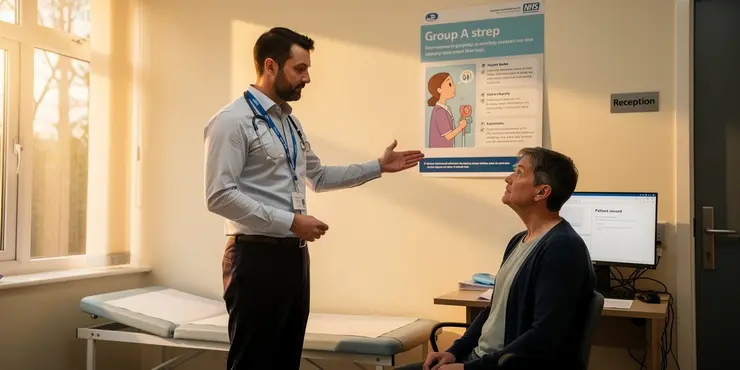
Group A strep: North East GP tells you what you need to know
Relevance: 22%
-
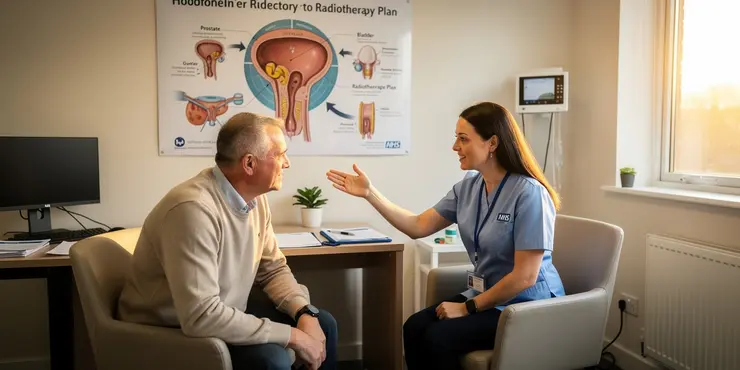
What is it like having Prostate Radiotherapy treatment?
Relevance: 22%
-
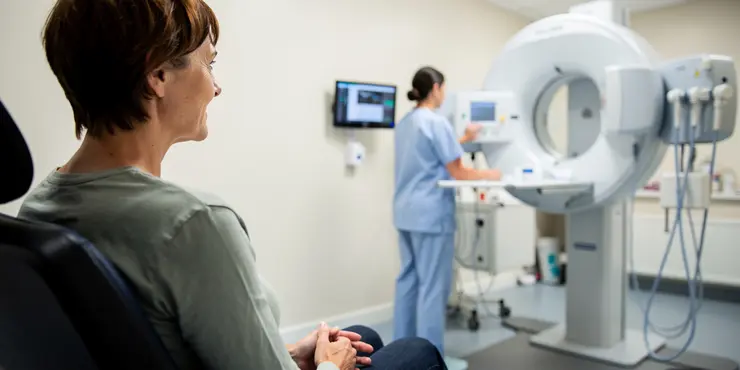
Radiotherapy to the Head and Neck: A Guide for patients and their carers
Relevance: 21%
-
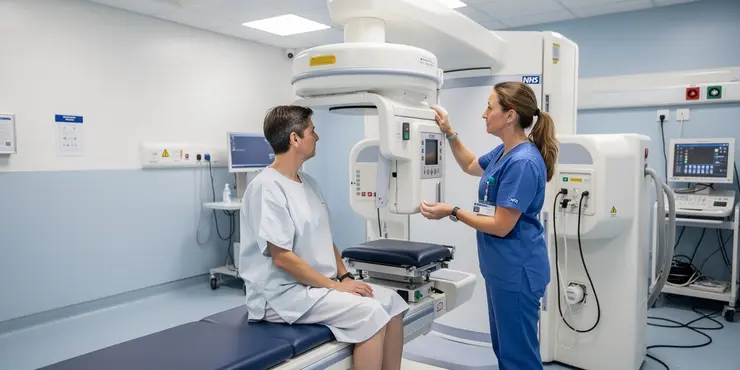
Cancer treatment: what happens during radiotherapy? | NHS
Relevance: 21%
-
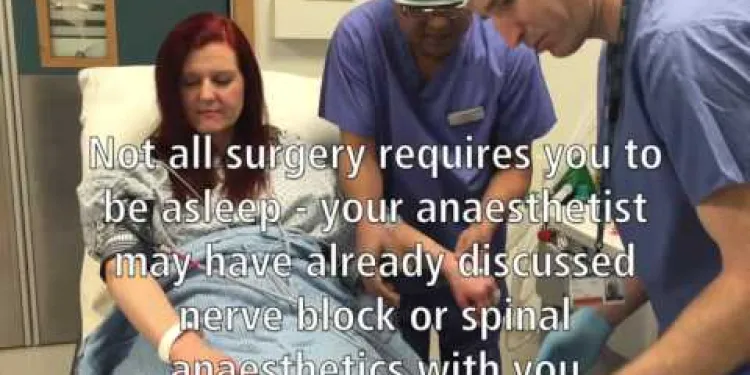
Your Operation at East Surrey Hospital
Relevance: 21%
-
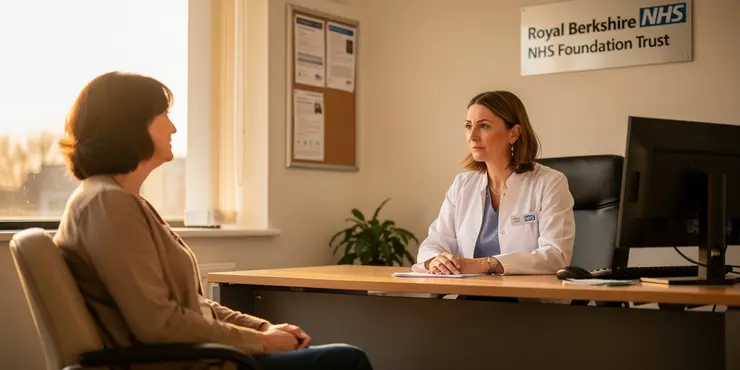
Royal Berkshire NHS Foundation Trust: Radiotherapy for head and neck cancers
Relevance: 21%
-
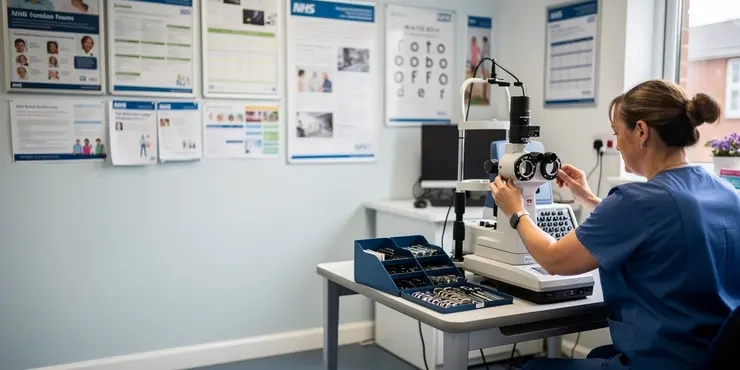
North Yorkshire Diabetic Eye Screening Programme - A day in the life
Relevance: 20%
-
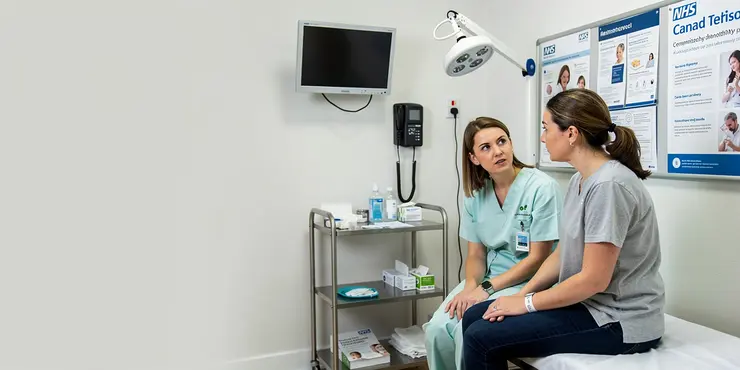
What is Radiotherapy, and its use in treatment for cancers?
Relevance: 20%
-
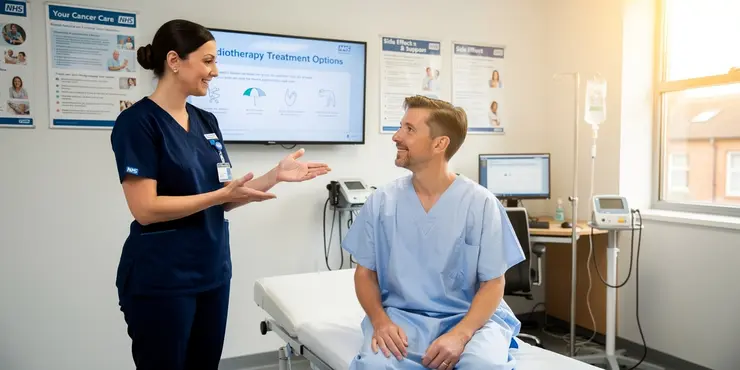
Royal Berkshire NHS Foundation Trust: Radiotherapy for prostate cancer
Relevance: 19%
-
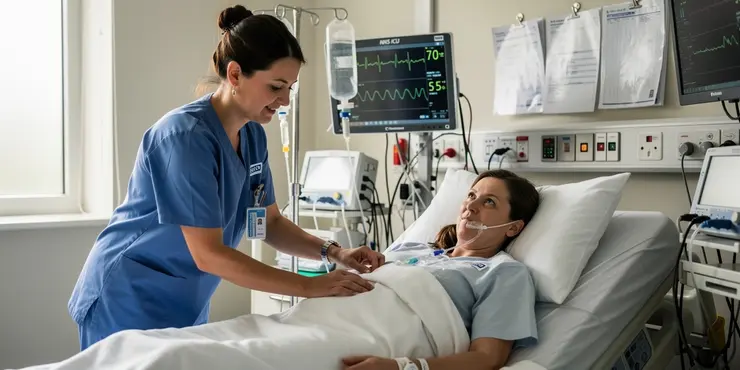
Your stay on the Intensive Care Unit at North Bristol NHS Trust
Relevance: 18%
-
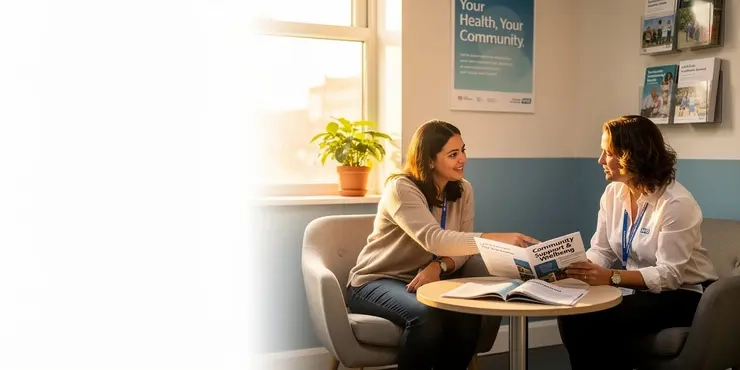
Social prescribing in south east London
Relevance: 17%
-
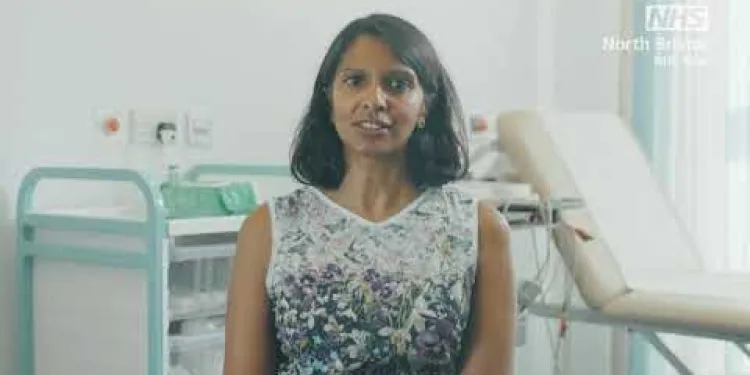
Inpatient Surgery at North Bristol NHS Trust
Relevance: 17%
-
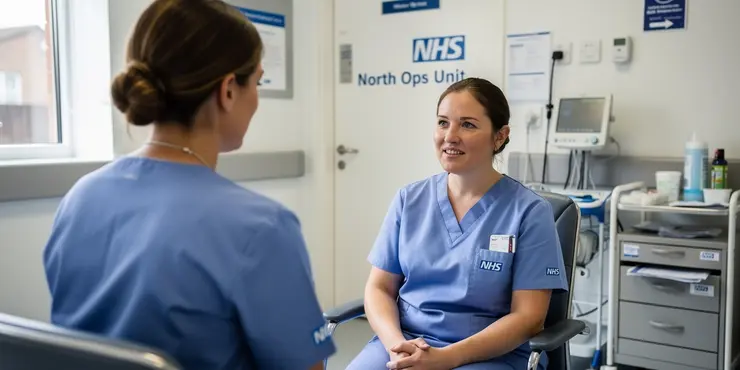
Surgery under local anaesthetic in the Minor Ops Unit at North Bristol NHS Trust
Relevance: 16%
-
Who appoints the Attorney General in the UK?
Relevance: 14%
-
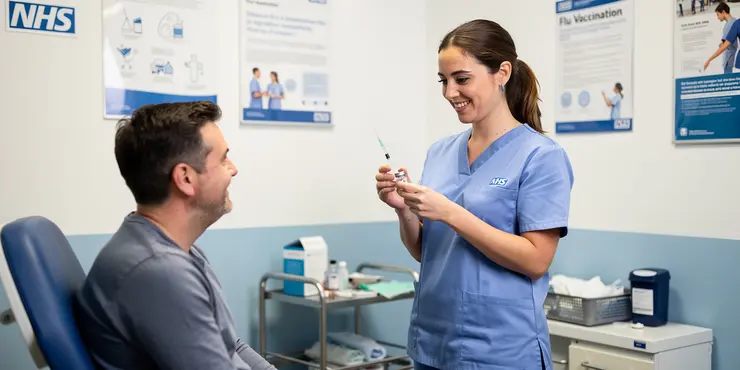
How do I book an appointment for the flu vaccine?
Relevance: 13%
-
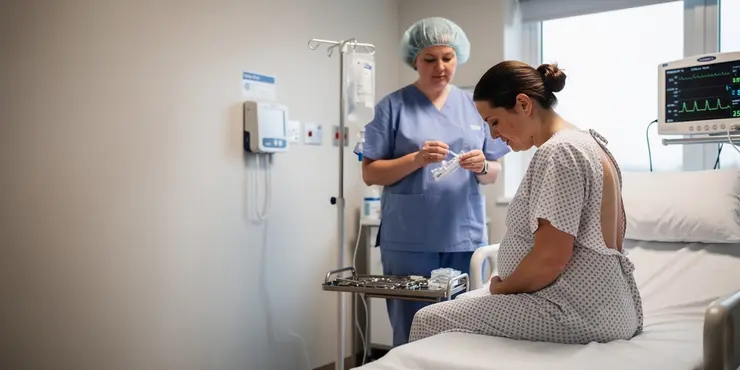
Epidural for labour at North Bristol NHS Trust
Relevance: 13%
-
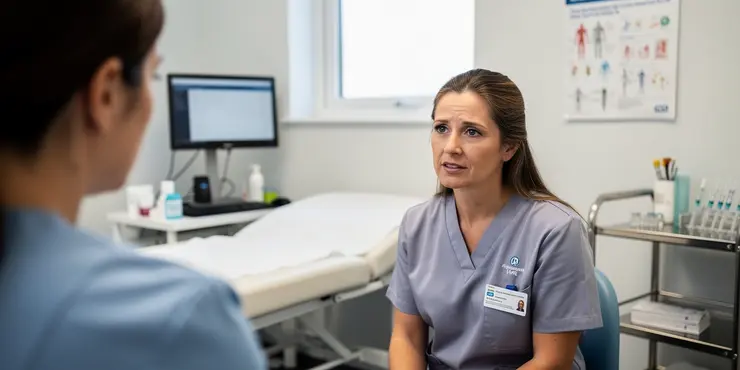
How should I prepare for a Botox appointment?
Relevance: 13%
-
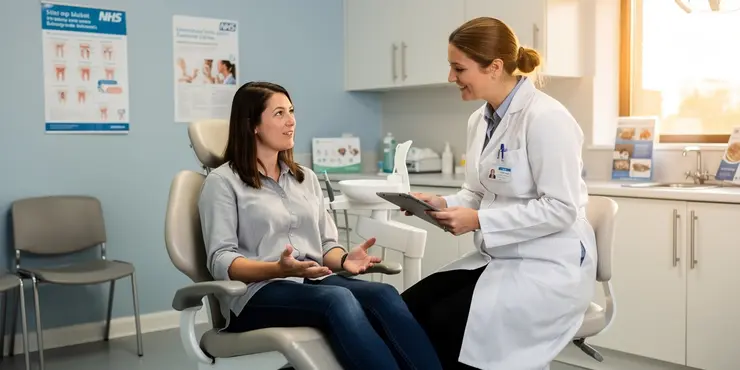
Can I get a dentist appointment on the NHS?
Relevance: 13%
-
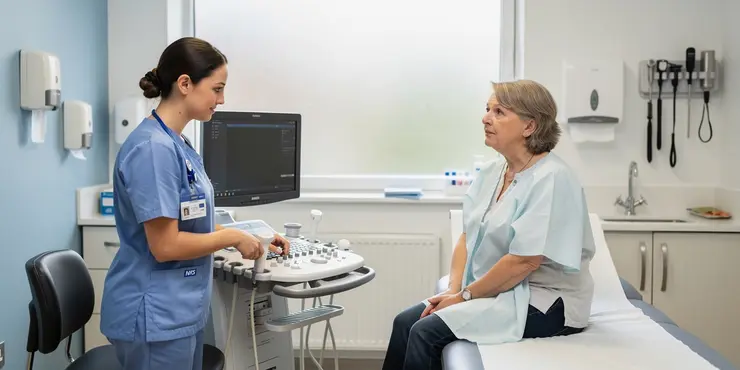
Your Ultrasound Appointment
Relevance: 13%
-
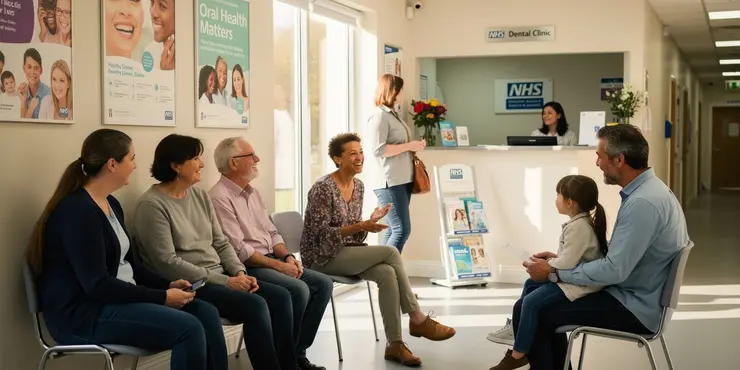
What happens if I miss my NHS dental appointment?
Relevance: 13%
-
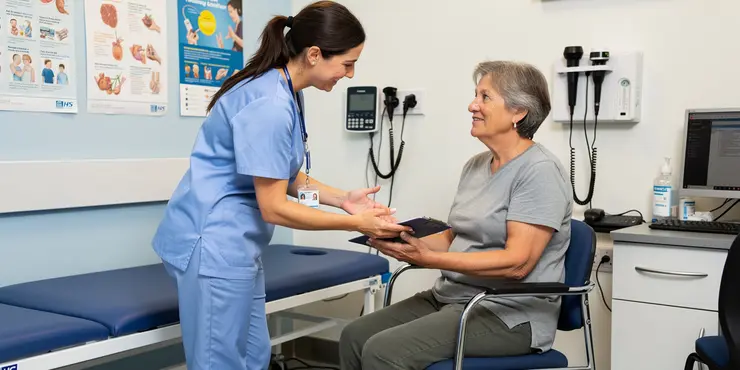
Did the bubonic plague affect only Europe?
Relevance: 13%
-
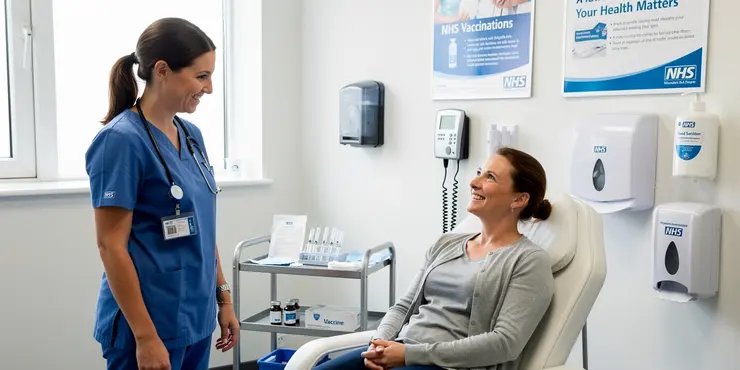
How can I get a COVID jab appointment?
Relevance: 13%
-
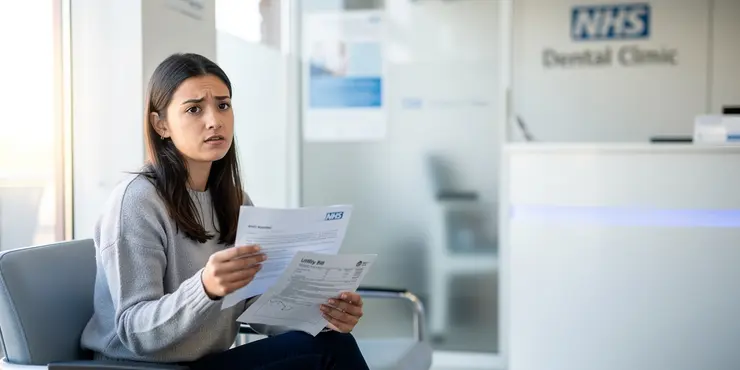
What should I bring to my NHS dental appointment?
Relevance: 12%
-
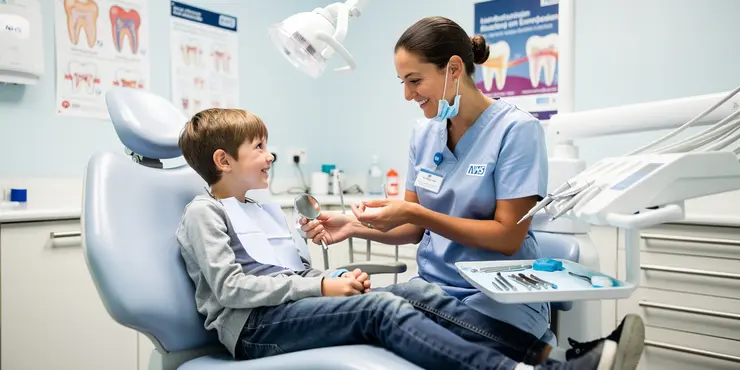
Can children get NHS dentist appointments?
Relevance: 12%
-
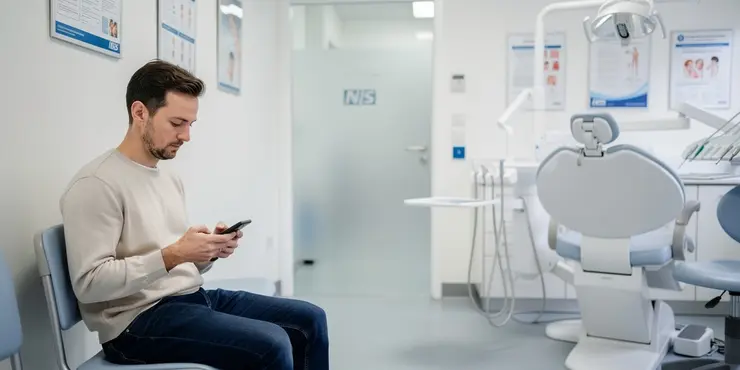
How long will I have to wait for an NHS dental appointment?
Relevance: 12%
-
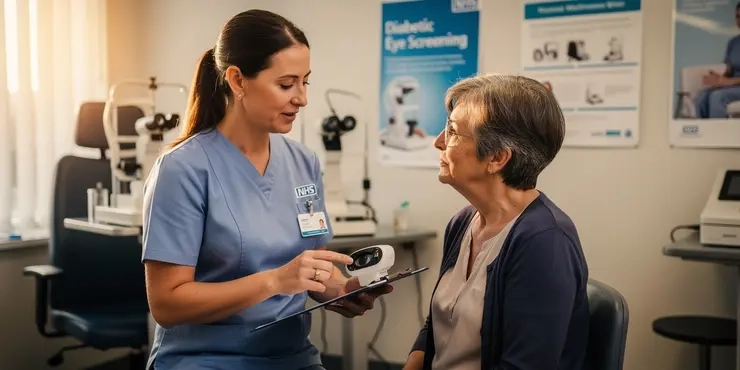
Derbyshire Diabetic Eye Screening - Your Screening Appointment
Relevance: 12%
-
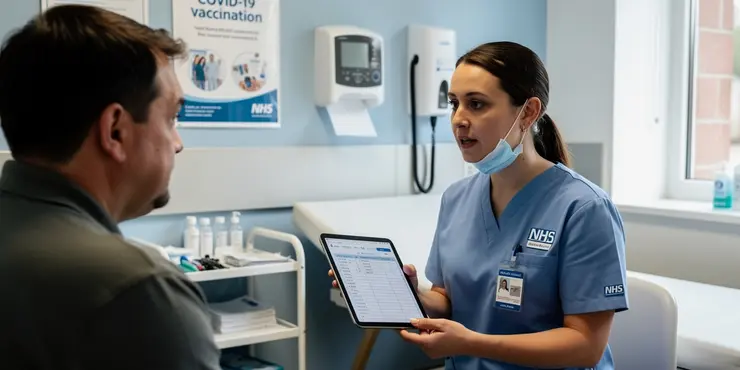
What should I do if I miss my second COVID jab appointment?
Relevance: 12%
-
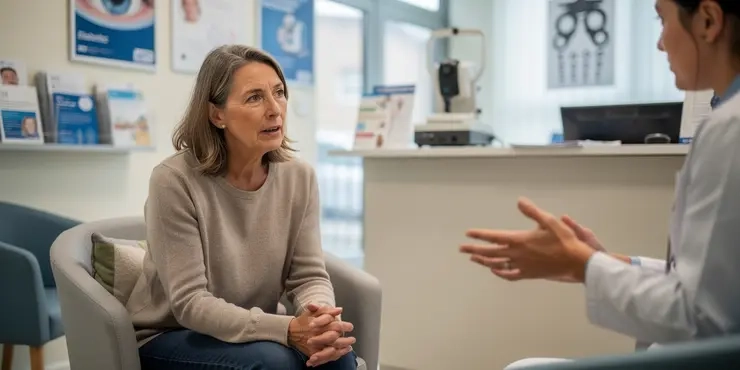
Derbyshire Diabetic Eye Screening - Assessment Clinic Appointment
Relevance: 12%
-
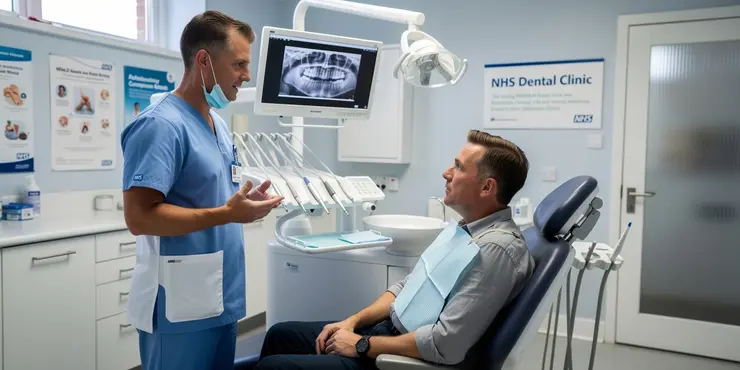
Are all dental appointments free on the NHS?
Relevance: 12%
-
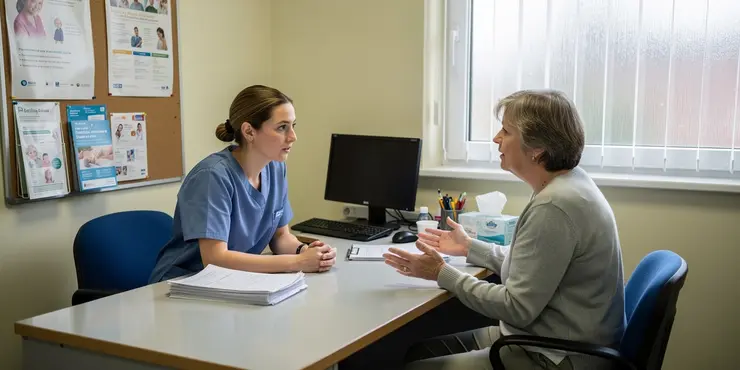
Autism Assessment - What Happens in Your Appointment
Relevance: 11%
-
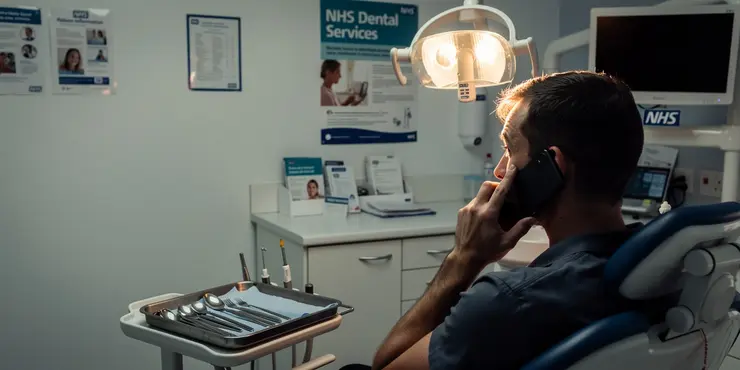
Can I get an emergency NHS dental appointment?
Relevance: 11%
-
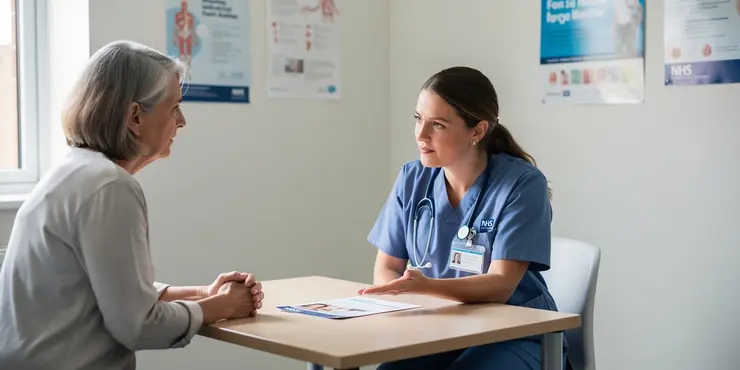
Post Menopausal Bleeding Clinic | A Guide to What Happens at An Appointment
Relevance: 11%
-
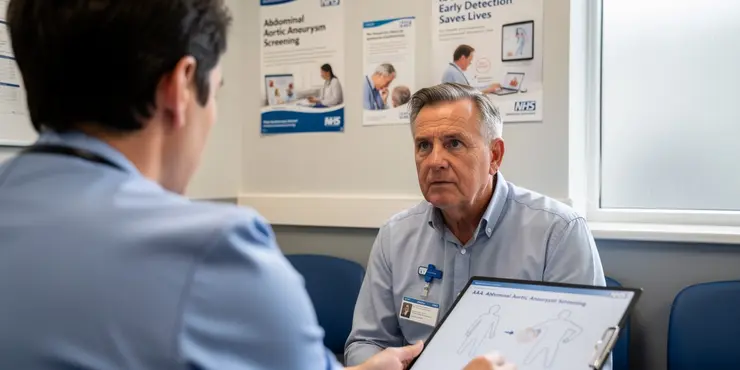
Your abdominal aortic aneurysm (AAA) screening appointment
Relevance: 11%
-
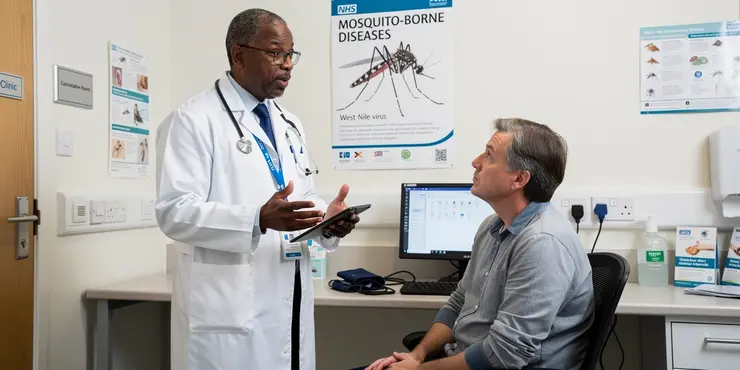
Which countries are affected by West Nile Virus?
Relevance: 11%
-
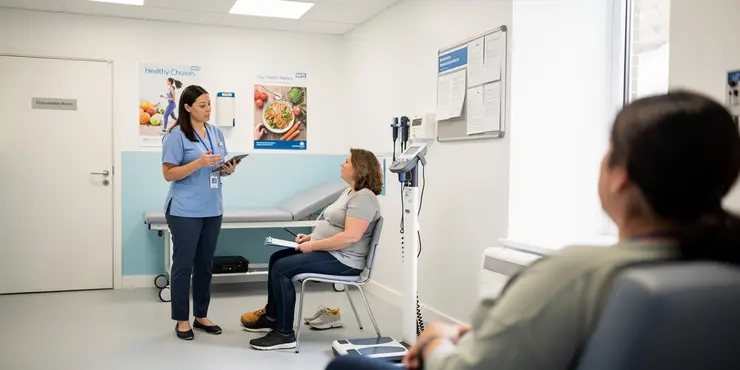
Is obesity more prevalent in certain regions of the UK?
Relevance: 11%
Radiotherapy Appointment in East and North Hertfordshire
Introduction to Radiotherapy
Radiotherapy is a treatment used primarily for cancer patients and involves the use of high-energy radiation to target and destroy cancer cells. People residing in East and North Hertfordshire have access to comprehensive radiotherapy services, supported by advanced technology and dedicated healthcare professionals.
Booking an Appointment
To book a radiotherapy appointment, patients usually require a referral from their General Practitioner (GP) or a specialist. The referral process involves a thorough medical assessment to determine the suitability and necessity of radiotherapy as part of the treatment plan.
What to Expect During Your Appointment
During your radiotherapy appointment, you will undergo several stages of preparation and treatment. The initial consultation includes a detailed discussion of your medical history, treatment goals, and potential side effects. Following this, your treatment team will create a personalised plan, often involving CT scans to delineate the exact target area.
Facilities and Technology
The radiotherapy departments in East and North Hertfordshire are equipped with state-of-the-art technology to ensure precise and effective treatment. Facilities include linear accelerators for delivering external beam radiotherapy and advanced imaging systems for accurate targeting. These departments are part of well-established hospitals like the Lister Hospital in Stevenage and the Mount Vernon Cancer Centre.
Support Services
In addition to clinical treatment, patients have access to comprehensive support services to help manage both the physical and emotional aspects of radiotherapy. Support services encompass nutritional advice, psychological support, and post-treatment rehabilitation. Specialist cancer support teams are available to provide guidance and assistance throughout the treatment journey.
Follow-Up and Aftercare
After completing radiotherapy, regular follow-up appointments are essential to monitor progress and address any concerns. These appointments help in managing side effects and ensuring the cancer is responding to treatment. The healthcare team will provide personalised aftercare plans to support recovery and maintain health.
Contact Information
For more information or to book a radiotherapy appointment, patients in East and North Hertfordshire can contact the radiotherapy departments directly at their respective hospitals or consult their GP for further guidance.
Radiotherapy Appointment in East and North Hertfordshire
What is Radiotherapy?
Radiotherapy is a treatment for cancer. It uses strong rays to kill cancer cells. In East and North Hertfordshire, people can get this treatment with the help of great technology and caring doctors.
How to Book an Appointment
To get a radiotherapy appointment, you need your doctor or a specialist to recommend it. This means they check your health to see if radiotherapy is the right treatment for you.
What Happens at Your Appointment
When you go for radiotherapy, you will have different steps to follow. First, the doctor will talk about your health and what you want from the treatment. Then, they plan your treatment. This might include taking special pictures of the inside of your body to know where to aim the treatment.
Where You Will Get Treatment
The places in East and North Hertfordshire use the latest machines for treatment. They have big machines to give radiotherapy and special cameras to see inside your body. You can find these treatments at hospitals like the Lister Hospital in Stevenage and the Mount Vernon Cancer Centre.
Help and Support
Besides treatment, there are many ways patients can get help. You can get advice on eating well, talk to someone about your feelings, and get help after treatment. Special teams are there to support you in your journey.
After Treatment
Once you finish radiotherapy, you will have follow-up visits. These visits are to check how you are doing and to help with any side effects. The health team will give you a plan to help you recover and stay healthy.
How to Get More Information
If you want more information or wish to book a radiotherapy appointment, you can call the radiotherapy departments in your hospital or talk to your GP for advice.
Frequently Asked Questions
What should I expect during my first radiotherapy appointment?
Your first appointment will include a consultation, where your oncologist will discuss your treatment plan. You may also have a planning CT scan to map out the treatment area.
How long will each radiotherapy session take?
Each session typically lasts between 10 to 30 minutes, although the actual time you are in the treatment room may be shorter.
Do I need to do anything to prepare for my radiotherapy sessions?
Your care team will provide specific instructions, which may include dietary restrictions or guidelines on drinking fluids. Wear comfortable clothing and follow the preparation advice given to you.
Will I feel any pain during the radiotherapy treatment?
Radiotherapy itself is painless. However, you might experience discomfort from having to stay still in a certain position during treatment.
How often will I need to attend radiotherapy sessions?
Frequency varies depending on your treatment plan, but it is commonly given five days a week, from Monday to Friday, for several weeks.
Can I drive myself to my radiotherapy appointments?
Many patients can drive themselves, but it depends on how you are feeling. Fatigue is a common side effect, so you may want to have someone accompany you.
What side effects can I expect from radiotherapy?
Side effects may include fatigue, skin irritation, and changes in the treated area. Your oncologist will provide more detailed information based on your individual treatment.
Can I continue working during my radiotherapy treatment?
Many people continue working during their treatment, but it depends on how you feel and the type of work you do. Discuss this with your employer and care team.
Will I lose my hair from radiotherapy?
Hair loss only occurs in the area being treated. For example, if you are receiving radiotherapy to your head, you may lose hair in that area, but not body-wide.
Can I eat and drink normally during radiotherapy?
In most cases, yes. However, some treatments require dietary adjustments. Your care team will provide specific recommendations.
Is it safe to be around family and friends during my treatment?
Yes, it is safe. Radiotherapy does not make you radioactive, so you can be around others without concern.
What happens if I miss a radiotherapy session?
Try not to miss any sessions, but if you do, contact your care team as soon as possible to reschedule and stay on track with your treatment.
How should I care for my skin in the treatment area?
Use mild soap, avoid rubbing the area, and follow your radiographer's advice on skincare products. Protect your skin from the sun.
Will I need any follow-up appointments after my treatment?
Yes, follow-up appointments are essential to monitor your progress and manage any side effects. Your oncologist will schedule these appointments.
Can I exercise during radiotherapy treatment?
Light to moderate exercise is usually beneficial, but listen to your body and rest as needed. Always consult with your care team before starting or continuing an exercise routine.
What will happen at my first radiotherapy visit?
When you go for your first radiotherapy visit, here is what you can expect:
You will meet friendly staff who will help you. They will explain what will happen and answer any questions you have.
You might have a scan. This helps the doctors see where you need the treatment.
You will change into a special gown for the treatment.
When it is time for the treatment, you will lie down on a big machine. The machine will not touch you, but it will move around you.
The treatment does not hurt, but you will need to stay still for a short time.
You can bring a friend or family member to wait with you. They can give you support and comfort.
If you feel worried, tell the staff. They are there to help you feel calm and safe.
Remember, it is okay to have questions. Asking questions can help you understand your treatment better.
At your first visit, you will meet with the doctor. The doctor will talk about your treatment plan. You might have a special X-ray called a CT scan to help plan your treatment.
How long does radiotherapy take?
Each time you go for radiotherapy, it will take about 10 to 30 minutes.
Bring a book or toy to pass the time if you have to wait.
Ask someone to come with you, like a friend or family member, for support.
Each session usually takes 10 to 30 minutes. But, you might not be in the room for that long.
What should I do to get ready for my radiotherapy sessions?
Here are some simple steps to help you get ready:
- Wear comfortable clothes.
- Ask a friend or family member to come with you, if you can.
- Make a list of any questions you have for your doctor.
It can also help to use calming techniques, like taking deep breaths.
Your care team will tell you what to do. They might say what you can eat or drink. Wear comfy clothes and listen to what they tell you to get ready.
Will it hurt during radiotherapy?
Radiotherapy is a kind of treatment. Some people worry it might hurt.
Good news! Most people do not feel pain from the treatment itself.
Some parts of your body might feel sore or tired later. Let a doctor or nurse know if this happens. They can help.
You can use things like:
- Soft music to help you relax
- A soft pillow for comfort
- Talking to someone you trust
Radiotherapy does not hurt. But during treatment, you may feel a bit uncomfortable because you have to stay very still.
How many times do I go for radiotherapy?
The number of times you get treatment can change. But most people get it five days a week, from Monday to Friday. This can go on for many weeks.
Can I drive to my radiotherapy appointments?
Radiotherapy is a treatment for cancer. It can make you feel very tired.
Ask your doctor if you can drive. They will help you decide.
If driving is hard, ask a friend or family member for a ride. You can also look for help from a community service.
Lots of people can drive by themselves. But it depends on how you feel. Feeling very tired is common, so having someone with you might help.
What might happen to my body after radiotherapy?
After having radiotherapy, some people might feel changes in their body. Here are a few things you might feel:
- You could feel very tired.
- Your skin might get red or sore.
- You might feel sick to your stomach.
- You could have a headache.
Everyone is different, so you may not feel all these things. It is important to tell your doctor how you feel. They can help you feel better.
Try some ways to help you rest and feel better:
- Get lots of sleep.
- Eat healthy foods.
- Drink plenty of water.
- Ask friends or family for help when you need it.
Sometimes, there can be problems like feeling very tired, skin getting sore, and changes where you are being treated. Your cancer doctor will tell you more about how it might affect you.
Can I keep working while I have radiotherapy?
Radiotherapy is a treatment for cancer. It can make you feel tired. Some people can still work. Some people need to rest. Talk to your doctor about how you feel.
Here are some tips to help you:
- Tell your boss you are having treatment.
- Work part-time if you can.
- Take breaks when you feel tired.
It's okay to ask for help. You can use a calendar to plan your days. Make sure to rest and take care of yourself.
Some people keep working while they are getting better. It depends on how you feel and what job you have. Talk to your boss and doctor about it.
Will I lose my hair from radiotherapy?
Here is a simpler version of the question, written in a way that is easier to understand. This translation uses short sentences and simple words.
Will my hair fall out if I have radiotherapy?
If you have radiotherapy, it might make your hair fall out. It depends on where the radiotherapy is used on your body. If the treatment is on your head, your hair there can fall out.
If you have more questions, asking your doctor or nurse can help you understand better. You can also use pictures to help you learn. Talking with friends or family can also help make things clearer.
You will only lose hair where you get the treatment. For example, if they treat your head, you might lose hair there. But you won't lose hair all over your body.
Helpful tips:
- Use a calendar to track hair changes.
- Talk to someone about how you feel.
Can I eat and drink like usual when I have radiotherapy?
Yes, you can eat and drink like normal. But sometimes, the treatment might make you feel a bit sick or not hungry.
If this happens, try these tips:
- Eat small meals often, not just three big meals.
- Drink lots of water to stay healthy.
- Ask your doctor or nurse for help and advice.
Yes, most of the time. But, for some treatments, you might need to change what you eat. Your healthcare team will tell you what to do.
Can I be with my family and friends while I get better?
Here is some simple advice:
- Ask your doctor if it is okay to see family and friends.
- Wash your hands to keep germs away.
- Tell people to stay home if they feel sick.
- Rest when you feel tired.
Tools to help:
- Use a calendar to plan visits when you feel good.
- Use video calls to talk to family and friends if you can't see them in person.
Yes, it is safe. Radiotherapy does not make you dangerous to others. You can be around people without worry.
What if I can't go to a radiotherapy session?
If you miss a radiotherapy session, don't worry. Tell the doctor or nurse as soon as you can.
Things that can help:
- Write down your appointments on a calendar.
- Ask a friend or family member to remind you.
- Use alarms on your phone to remember.
Try not to miss any sessions. If you do miss one, talk to your care team quickly. They can help you book a new time and keep your treatment on track.
How do I take care of my skin where I am getting treatment?
Here are some simple tips:
- Wash the skin gently with warm water and mild soap.
- Pat the skin dry with a soft towel. Do not rub it.
- Avoid using any creams or lotions that have strong smells or chemicals unless your doctor says it's okay.
- Wear soft, loose clothes to keep the skin from getting irritated.
- If you go outside, protect your skin from the sun.
If you have questions, you can ask your doctor or nurse for help.
Using a calendar can help you remember to take care of your skin every day.
Use a gentle soap. Do not rub your skin. Listen to what your x-ray person says about skin cream. Keep your skin safe from the sun.
Will I need to see the doctor again after my treatment?
Yes, you might need to see the doctor again after you finish your treatment. This is to make sure you are getting better.
Helpful Tips:
- Ask someone you trust to help you remember your appointments.
- Use a calendar or set reminders on your phone for your next visit.
- Bring a friend or family member to the appointment if you need support.
Yes, going back to the doctor is very important. These visits help the doctor see how you are doing and if there are any problems. Your cancer doctor will plan these visits for you.
Can I do exercise when I am having radiotherapy?
It's good to move your body, even when having radiotherapy. Try these tips:
- Do simple exercises, like walking.
- Rest when you feel tired.
- Talk to your doctor about what is safe for you.
Doing some exercise can be good for you, but don't do too much. Pay attention to how your body feels and take breaks when you need to. Talk to your doctor or nurse before you start or keep doing exercise.
Useful Links
This website offers general information and is not a substitute for professional advice.
Always seek guidance from qualified professionals.
If you have any medical concerns or need urgent help, contact a healthcare professional or emergency services immediately.
Some of this content was generated with AI assistance. We’ve done our best to keep it accurate, helpful, and human-friendly.
- Ergsy carfully checks the information in the videos we provide here.
- Videos shown by Youtube after a video has completed, have NOT been reviewed by ERGSY.
- To view, click the arrow in centre of video.
- Most of the videos you find here will have subtitles and/or closed captions available.
- You may need to turn these on, and choose your preferred language.
- Go to the video you'd like to watch.
- If closed captions (CC) are available, settings will be visible on the bottom right of the video player.
- To turn on Captions, click settings .
- To turn off Captions, click settings again.
More Items From Ergsy search
-

A Radiotherapy appointment in east and North Hertfordshire
Relevance: 100%
-

NHS Ayrshire and CVO East Ayrshire - ‘Feet First – Podiatry Services in East Ayrshire’
Relevance: 24%
-

Radiotherapy CT scanner
Relevance: 24%
-

Having radiotherapy for breast cancer - 3 Videos
Relevance: 23%
-

Radiotherapy Services at University Hospital
Relevance: 23%
-

Group A strep: North East GP tells you what you need to know
Relevance: 22%
-

What is it like having Prostate Radiotherapy treatment?
Relevance: 22%
-

Radiotherapy to the Head and Neck: A Guide for patients and their carers
Relevance: 21%
-

Cancer treatment: what happens during radiotherapy? | NHS
Relevance: 21%
-

Your Operation at East Surrey Hospital
Relevance: 21%
-

Royal Berkshire NHS Foundation Trust: Radiotherapy for head and neck cancers
Relevance: 21%
-

North Yorkshire Diabetic Eye Screening Programme - A day in the life
Relevance: 20%
-

What is Radiotherapy, and its use in treatment for cancers?
Relevance: 20%
-

Royal Berkshire NHS Foundation Trust: Radiotherapy for prostate cancer
Relevance: 19%
-

Your stay on the Intensive Care Unit at North Bristol NHS Trust
Relevance: 18%
-

Social prescribing in south east London
Relevance: 17%
-

Inpatient Surgery at North Bristol NHS Trust
Relevance: 17%
-

Surgery under local anaesthetic in the Minor Ops Unit at North Bristol NHS Trust
Relevance: 16%
-
Who appoints the Attorney General in the UK?
Relevance: 14%
-

How do I book an appointment for the flu vaccine?
Relevance: 13%
-

Epidural for labour at North Bristol NHS Trust
Relevance: 13%
-

How should I prepare for a Botox appointment?
Relevance: 13%
-

Can I get a dentist appointment on the NHS?
Relevance: 13%
-

Your Ultrasound Appointment
Relevance: 13%
-

What happens if I miss my NHS dental appointment?
Relevance: 13%
-

Did the bubonic plague affect only Europe?
Relevance: 13%
-

How can I get a COVID jab appointment?
Relevance: 13%
-

What should I bring to my NHS dental appointment?
Relevance: 12%
-

Can children get NHS dentist appointments?
Relevance: 12%
-

How long will I have to wait for an NHS dental appointment?
Relevance: 12%
-

Derbyshire Diabetic Eye Screening - Your Screening Appointment
Relevance: 12%
-

What should I do if I miss my second COVID jab appointment?
Relevance: 12%
-

Derbyshire Diabetic Eye Screening - Assessment Clinic Appointment
Relevance: 12%
-

Are all dental appointments free on the NHS?
Relevance: 12%
-

Autism Assessment - What Happens in Your Appointment
Relevance: 11%
-

Can I get an emergency NHS dental appointment?
Relevance: 11%
-

Post Menopausal Bleeding Clinic | A Guide to What Happens at An Appointment
Relevance: 11%
-

Your abdominal aortic aneurysm (AAA) screening appointment
Relevance: 11%
-

Which countries are affected by West Nile Virus?
Relevance: 11%
-

Is obesity more prevalent in certain regions of the UK?
Relevance: 11%


